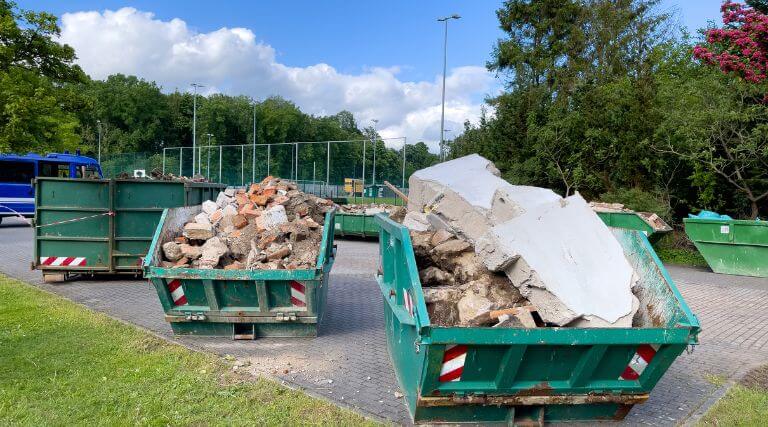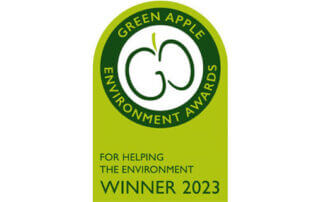
Eco-friendly building construction has become a cornerstone of modern development. As environmental concerns grow, homeowners, architects, and builders are increasingly prioritising sustainable practices. With the right materials, design strategies, and waste management solutions, eco-friendly construction not only benefits the planet but can also save money and improve the quality of life for those who live and work in these spaces.
Here, we explore the key secrets to achieving eco-friendly building construction, from material selection to waste disposal, and why embracing these practices is essential for a sustainable future.
What Is Eco-Friendly Building Construction?
Eco-friendly construction focuses on minimising the environmental impact of buildings throughout their lifecycle, including design, construction, operation, and demolition. It aims to use resources efficiently, reduce waste, and improve energy efficiency, all while ensuring the final structure supports a healthy environment for its occupants.
The Importance of Sustainable Materials
Choosing the right materials is one of the most critical aspects of eco-friendly building. Opt for renewable, recyclable, or locally sourced materials to minimise carbon emissions and resource depletion.
- Bamboo: A highly renewable material, bamboo grows quickly and is incredibly strong, making it a fantastic option for flooring and structural elements.
- Recycled Steel: Using recycled steel can reduce the need for new raw materials and significantly cut energy use during production.
- Cork: This sustainable material is harvested without harming trees and is ideal for insulation and flooring.
- Straw Bales: These offer excellent insulation and can reduce reliance on artificial heating and cooling systems.
Energy Efficiency in Design
Energy-efficient design is at the heart of eco-friendly construction. Implementing strategies to reduce energy consumption not only lowers bills but also reduces a building’s carbon footprint.
- Passive Solar Design: By orienting buildings to maximise natural light and heat, you can reduce the need for artificial lighting and heating.
- Green Roofs: These provide insulation, reduce heat absorption, and improve air quality, while also creating a space for vegetation.
- High-Performance Windows: Double or triple-glazed windows help to retain heat, lowering energy use for heating and cooling.
- LED Lighting: LEDs use significantly less energy than traditional bulbs and have a longer lifespan.
Water Conservation Techniques
Eco-friendly buildings must also consider water usage. Incorporating systems that conserve and recycle water can have a massive environmental impact.
- Rainwater Harvesting: Collecting and reusing rainwater for non-drinking purposes, such as irrigation or flushing toilets, reduces reliance on mains water.
- Low-Flow Fixtures: Installing low-flow taps, showers, and toilets can cut water use without compromising performance.
- Greywater Recycling: Systems that treat and reuse water from sinks, showers, and washing machines can reduce waste and water bills.
Managing Construction Waste
Waste management is a key challenge in construction. However, with the right planning and resources, it’s possible to reduce, reuse, and recycle most construction waste.
- Pre-Demolition Audits: Identify materials that can be salvaged or recycled before demolition begins.
- On-Site Sorting: Separating waste on-site into categories like metal, wood, and concrete makes recycling more efficient.
- Skip Hire Services: Partner with professional waste removal companies to ensure your construction site stays clean and adheres to environmental regulations. At Cheap Skip Hire Prices, we offer skips of various sizes to manage your waste responsibly.
Renewable Energy Integration
Adding renewable energy systems to buildings can make them self-sufficient and reduce reliance on fossil fuels.
- Solar Panels: These provide a sustainable source of energy for electricity and water heating.
- Wind Turbines: Small-scale wind turbines can generate electricity for remote or off-grid buildings.
- Geothermal Heating: Using the Earth’s natural heat, geothermal systems provide an efficient way to warm homes.
Why Eco-Friendly Construction Matters
Eco-friendly construction isn’t just about meeting environmental standards—it’s about creating buildings that are better for the planet and the people who use them. By reducing waste, improving energy efficiency, and incorporating sustainable practices, these buildings offer long-term financial savings, healthier living environments, and a reduced carbon footprint.
Let Us Help You Build Sustainably
If you’re planning a construction project and want to embrace eco-friendly practices, managing your waste is crucial. Cheap Skip Hire Prices offers professional, reliable skip hire services to help you dispose of construction waste responsibly.
Contact us today on 01442 229 029 or Book Online. Let’s work together to build a sustainable future!
about our business

Waste King is your go-to provider for all your rubbish clearance and skip hire needs.









